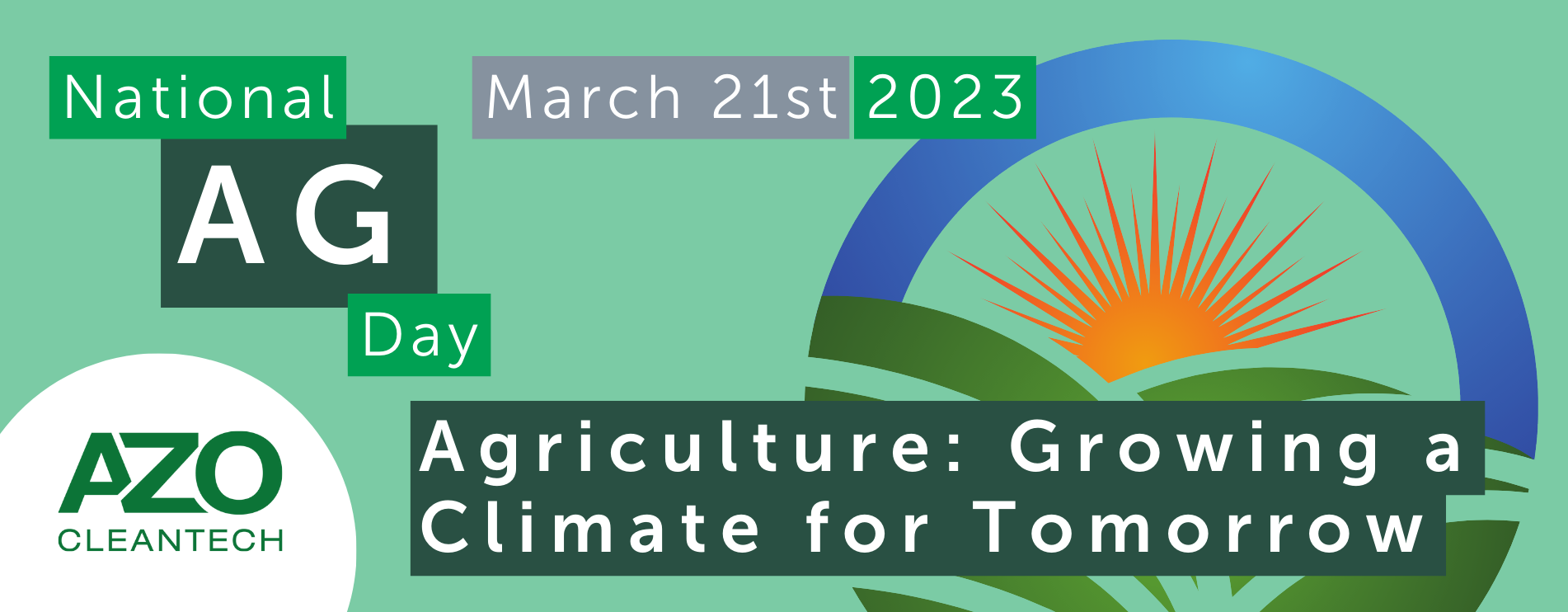March 21 is National Agriculture Day, recognizing and celebrating the contribution of agriculture to our daily lives. Understanding how food is produced and how agriculture ensures the world’s population can access safe and abundant food is essential.

Given the increasing pressure to meet climate change goals, the world’s heaviest polluters, including agriculture, are under immense pressure to adopt sustainable practices. This, in addition to the need to meet the Sustainable Development Goals, has led to a demand for agriculture to overhaul its processes so that food can:
- Continue to be created in abundance for the world’s growing population
- Be affordable, so there is sufficient nutrition for everyone
- Be produced in a way that does not harm the environment
The UN Food Systems Stocktaking Moment: Time To Accelerate Progress Toward the Sustainable Development Goals
In Rome, Italy, from July 24-26, 2023, the UN Food Systems Stocktaking Moment will take place.
This summit marks the crucial halfway point to meeting the Sustainable Development Goals and Agenda 2030, which came into force in 2016.
The 17 goals provide a framework for creating a more peaceful, fair, prosperous, equitable, and greener future.
The progress in ending hunger and achieving food security by 2030 is deteriorating.
The UN Food Systems Stocktaking Moment will provide a robust platform to uncover how the world can go further to change how it produces, consumes, and thinks about food.
The summit, the first of its kind, will unite over 50,000 people from 193 countries, including 77 Heads of State and Government. As a result, it is hoped that we will be in better shape to expedite the transformation of food systems to support the full realization of the 17 Sustainable Development Goals.
The Urgent Need to Overhaul Our Food Systems
It is widely acknowledged that poor diet is the leading contributor to premature death across the globe. The latest studies show that poor diets are accountable for around 20% of premature disease-mediated mortality worldwide.
Poor diet is a risk factor for cardiovascular disease, cancer and diabetes. As well as contributing to poor health and even death, poor health negatively impacts global healthcare systems by increasing service demand and causing costs to rise. It also leads to lost work days due to sickness, which affects earning potential and can trap individuals and even families into cycles of deprivation and poverty.
Approximately three billion people cannot afford a healthy diet, and the impact of the COVID-19 pandemic is predicted to increase this number by 267.6 million.
Over 1 billion people are obese (650 million adults, 340 million adolescents, and 39 million children). Recent studies have shown that the most deprived children are significantly more at risk of obesity.
Over 800 million people, roughly 10% of the world’s population, go to bed hungry, while one-third of all food produced is wasted daily. Changes are needed to protect human health, prosperity, and to increase equity in our societies.
The world’s food system hugely contributes to climate change and exhausts our natural resources. In addition to overhauling public access and conceptions of food, there is a pressing need to shift how food is produced.
By 2050, we will need a 50% increase in food production to feed the predicted population of 10 billion. If we were to produce that volume of food using today’s processes, it would not be sustainable; it would only lead to further greenhouse gases and damage to our arable land.
How Can We Transform Our Food System to Secure the Future of Our Planet?
Many strategies can be implemented to reimagine the food system and support our planet’s future. First, we can capitalize on the Earth’s regenerative power. Rather than employing agricultural processes that contribute to the loss of biodiversity and climate change, there is the opportunity to harness regenerative agriculture that improves the quality of the land while producing high-quality food.
Next, we can focus on building local, circular food systems. This helps address problems like wasting vital natural resources and food transportation emissions.
There also needs to be a focus on providing healthy products at affordable prices so that a healthy diet is accessible to all. This will feed into many other systems, such as healthcare systems, which stand to benefit from a reduction in the incidence of diseases for which poor diets play a contributing factor.
Overall, the transformation of global food systems will be a multi-pronged approach requiring close collaboration from all stakeholders. While there is concern that change is happening too slowly to meet the Sustainable Development Goals and Agenda 2030, there is no doubt that positive change will come from working towards these goals with the planet’s future in mind.
What does a strong food system mean?
Video Credit: UN Food Systems Coordination Hub/YouTube.com
References and Further Reading
2023. Transforming how we eat, ‘a critical accelerator’ towards 2030 development goals: Deputy UN chief [online]. United Nations. Available at: https://news.un.org/en/story/2023/02/1133142 (Accessed March 2023)
2023. Note to Correspondents: Stage set in Italy to take stock on progress towards the transformation of food systems across world at critical half-way point of the Sustainable Development Goals and Agenda 2030 [online]. United Nations. Available at: https://www.un.org/sg/en/content/sg/note-correspondents/2023-02-03/note-correspondents-stage-set-italy-take-stock-progress-towards-the-transformation-of-food-systems-across-world-critical-half-way-point-of-the-sustainable (Accessed March 2023)
2023. Stocktaking Moment [online]. US Food Systems. Available at: https://www.unfoodsystemshub.org/fs-stocktaking-moment/en (Accessed March 2023)
Sarah Bosely. 2015. Poor diet 'biggest contributor to early deaths across the world’ [online]. The Guardian. Available at: https://www.theguardian.com/society/2015/sep/11/poor-diet-biggest-contributor-early-deaths-world-study (Accessed March 2023)
Webb, P. et al. (2020) The urgency of food system transformation is now irrefutable. Nature Food, 1(10), pp. 584–585. Available at: https://doi.org/10.1038/s43016-020-00161-0
Disclaimer: The views expressed here are those of the author expressed in their private capacity and do not necessarily represent the views of AZoM.com Limited T/A AZoNetwork the owner and operator of this website. This disclaimer forms part of the Terms and conditions of use of this website.